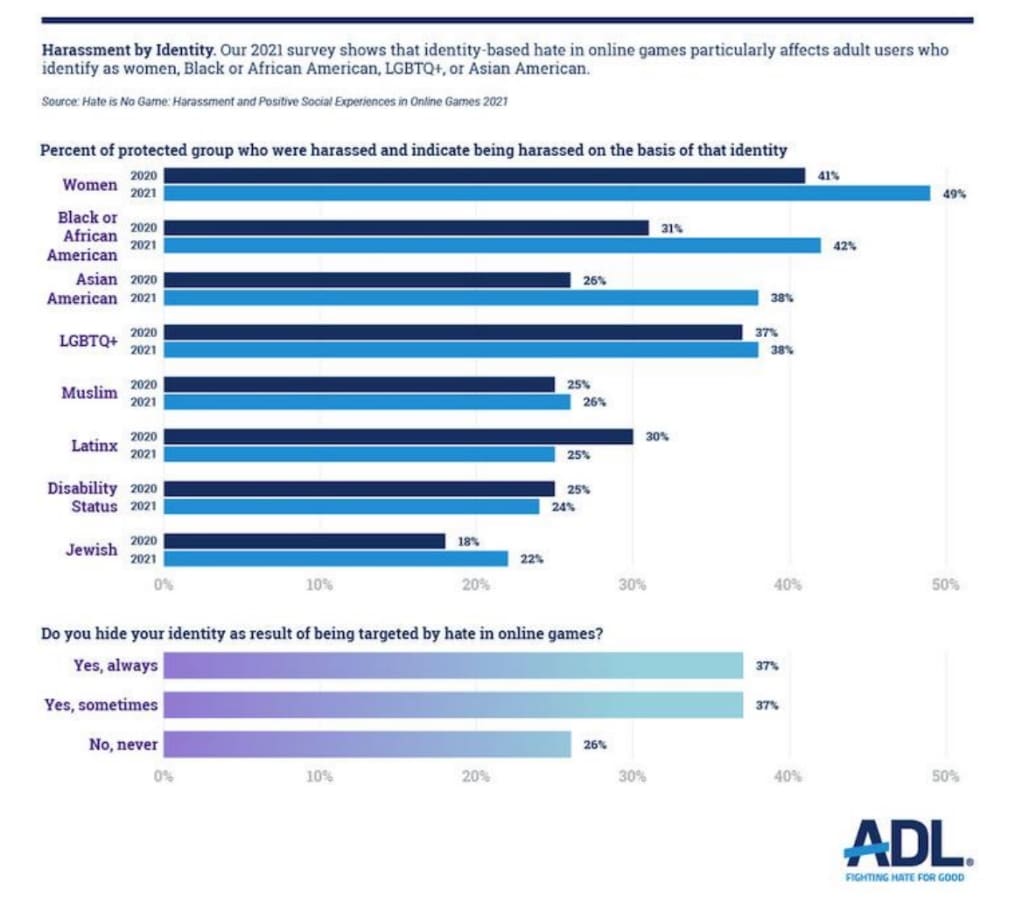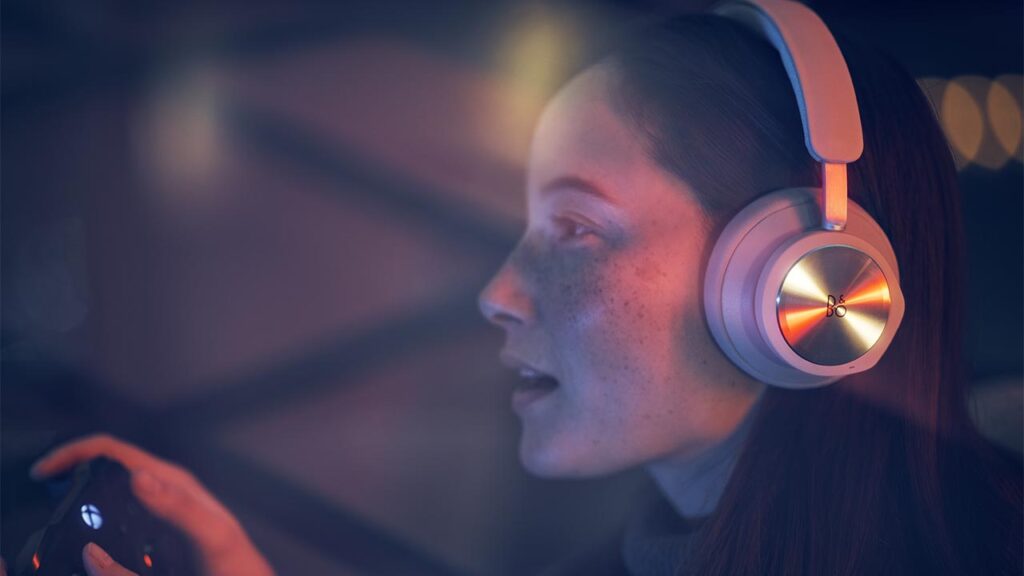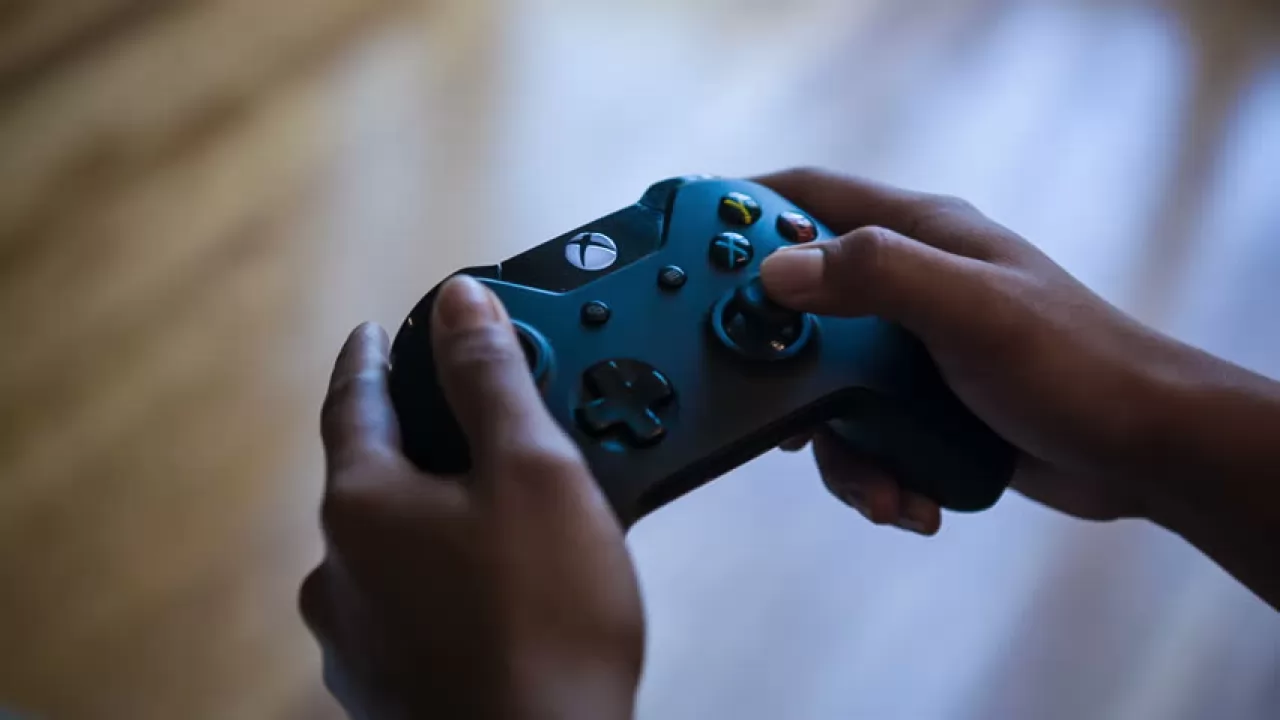A research conducted by the international agency Anti-Defamation League (ADL), in collaboration with the Newzoo editorial team, demonstrated how in 2021 there was a significant increase in the phenomena of racial and gender discrimination within online video games. The survey looked at around 2,200 regular American players up to the age of 45 and the results were not encouraging.
The phenomena of discrimination in online video games are growing
Let’s start with the positives of the research. According to the findings of the two entities 99% of respondents had some form of positive interaction during online gaming sessions. A fact that we do not find it hard to believe, given that in multiplayer games it often happens to end up in situations that are even unintentionally hilarious. However, many of the players have specified that they cannot talk about homogeneously positive situations.
83% of adults reported in this sense that they have been subjected to some type of harassment while playing online for the past six months, with 60% of teens saying the same. Sadly, it is not surprising to note that most of this harassment is directed at women, with an increase in signal phenomena which went from 41% last year to 49%.

Other groups that have seen a significant increase in discrimination incidents are African American players, with an increase from 31% to 42% compared to 2020, e Asian players, with an increase from 26% to 38%. The incidents occurred despite most of the interviewees claiming to hide their identity while playing online, suggesting the existence of an organized reality behind these phenomena.
In this regard, the study also reported an increase in the practice of doxing, which consists in making public private information of a particular user, and of the swatting, which instead provides for the false reporting of a user to emergency services.
What games are most affected?
At this point, you may be wondering which video games are most affected by these phenomena of discrimination. According to published data, the most affected stocks would be Valorant and Dota 2, in which 78% and 79% of players respectively declared that they had been subjected, at least once, to marginalization.
In third position we find Rocket League, where 59% of gamers have been involved in harassment. Immediately after we find instead Minecraft, with a 46%, the lowest value among the video games taken into consideration.

The percentage of players who reported having stopped playing certain games due to toxic community behavior also increased for the second consecutive year. A sad factor but unfortunately not surprising, especially given that we are talking about an increase of up to 27% compared to 22% last year.
Valorant and Call of Duty are video games where players they abandoned the game more, with 42% of users claiming to have become more attentive or to have shelved the title altogether due to the behavior they had experienced on their skin during multiplayer sessions.
The data is not encouraging, as you have seen by reading these lines, and to deal with the phenomenon it will be necessary, ADL explains, to implement more effective moderation protocols, in such a way as to allow the victims of abuse to make their voices heard. .
Video games reflect society
All of this shouldn’t push you to demonize video games. In fact, the problem is systemic as well as global. Gender and racial discrimination is a phenomenon that still permeates the social fabric today, in 2021. We are still slaves to a way of thinking that comes from far less civilized times than ours. Simply the videogame sector – under scrutiny for years, both for the quantity of young people it involves and for the volume of the market – makes it easier to recognize these behaviors.
But recognizing them is not enough. Nor do you occasionally talk about it using some media or riding the latest terrifying news of discrimination. What we need, in our opinion, is the education. At all levels. Of course, it is important that the press sets a good example, it is important to see women who work in the world of video games join forces and be supported, but it is vital to teach the new generations – and possibly also the old ones – equality and respect.
Video games are not a male activity, a pastime for men. Video games are for everyone. Regardless of the type of game. There are no titles for males and titles for females just as there is no gender more predisposed to competition or the general use of the medium.
I video games are for everyone.
Or, perhaps, it would be better to say that the world belongs to and for everyone. We should teach this to the little ones. An initiative that would help the planet to be less sexist and less racist. And to join forces in the face of the really important things, leaving video games to entertain and distract, without turning online into a minefield that drives people to feel insecure and inadequate.













Leave a Reply
View Comments